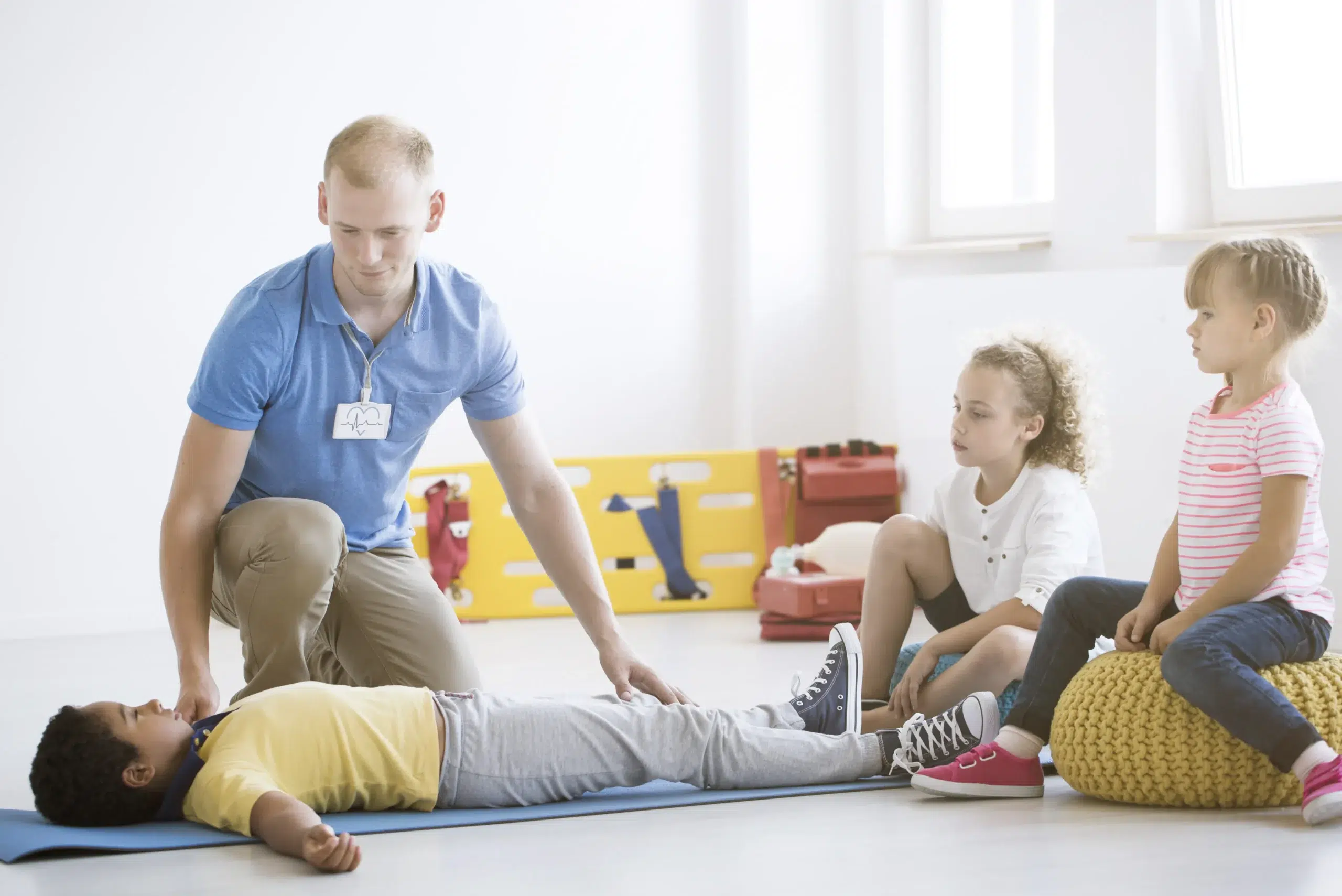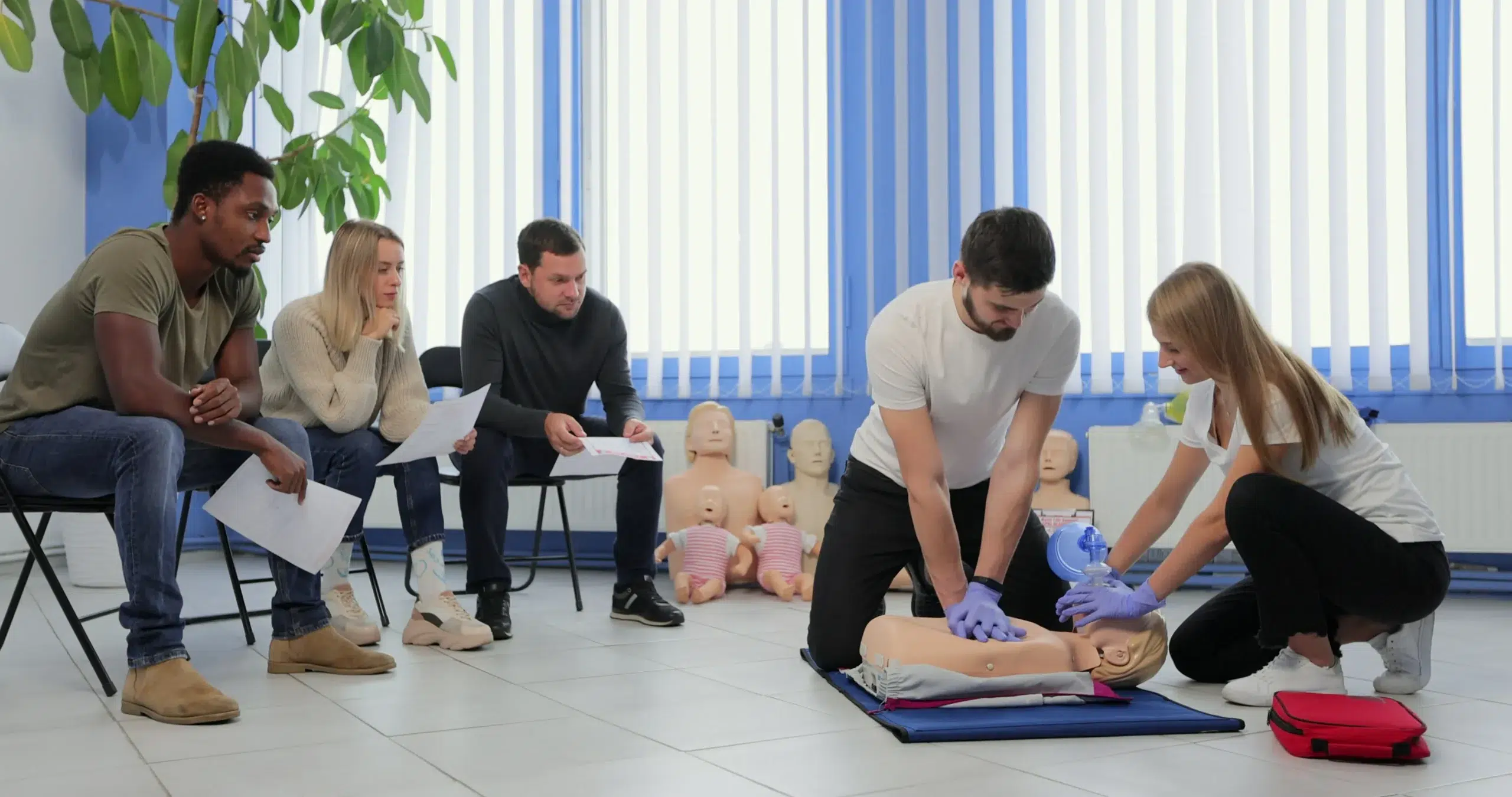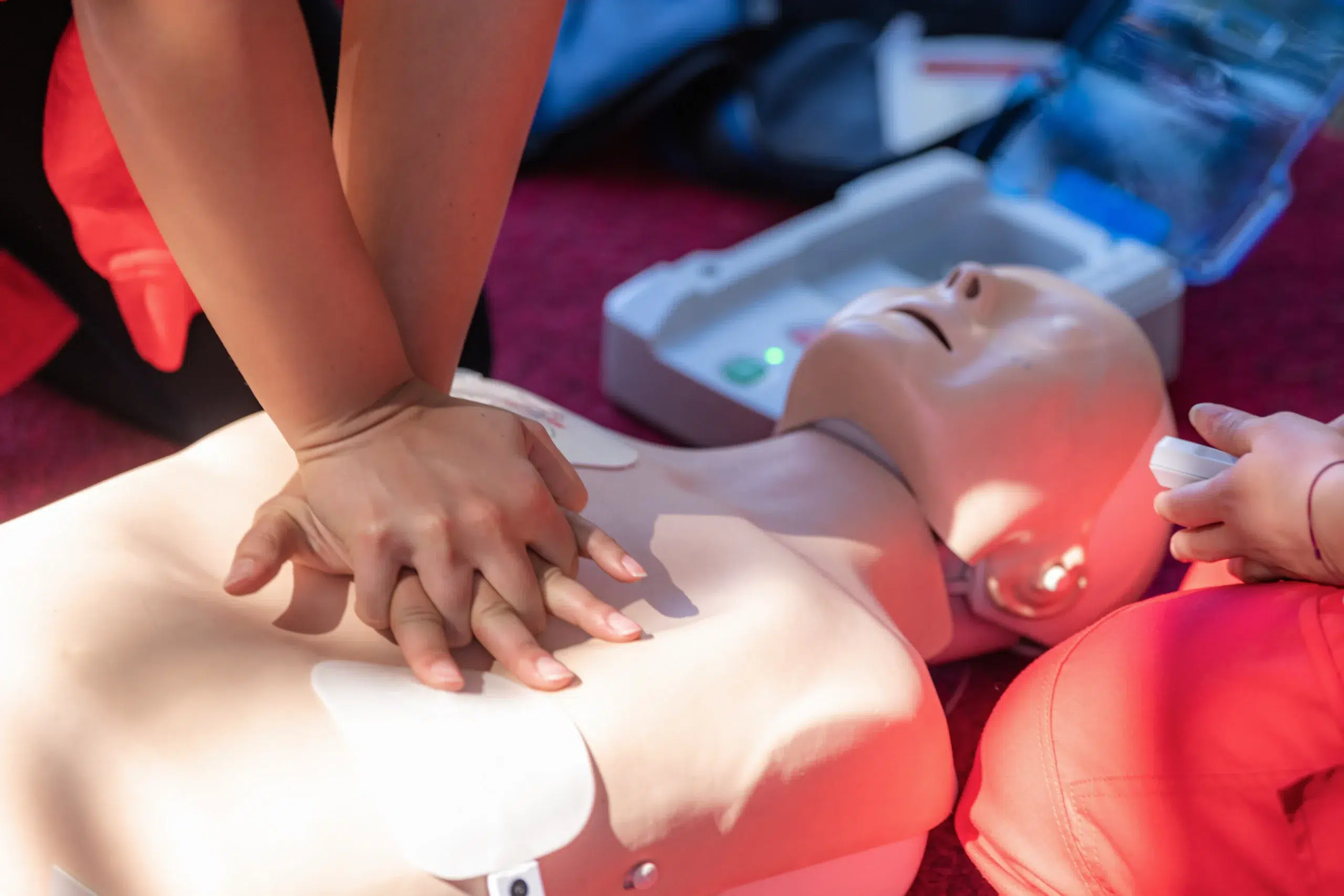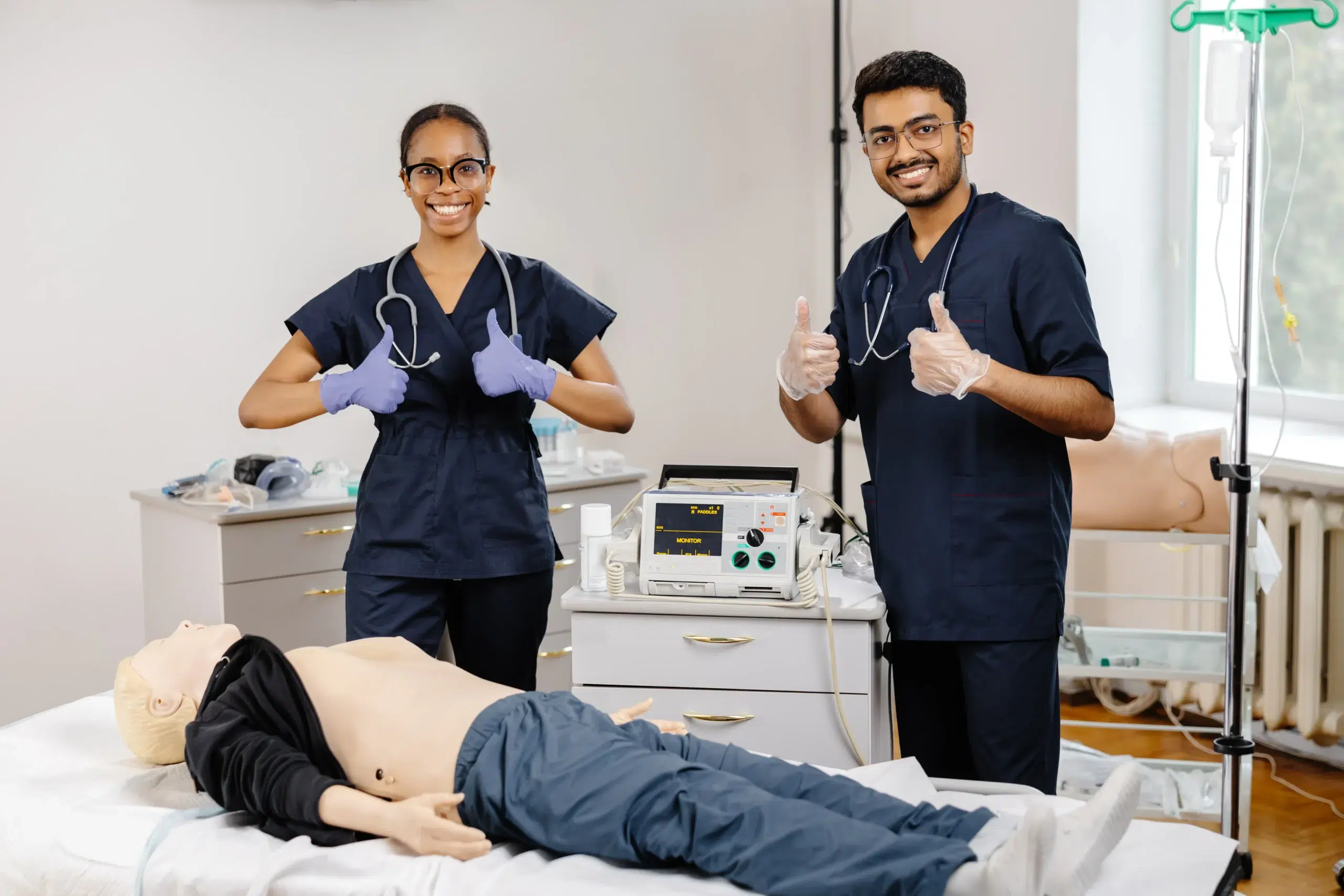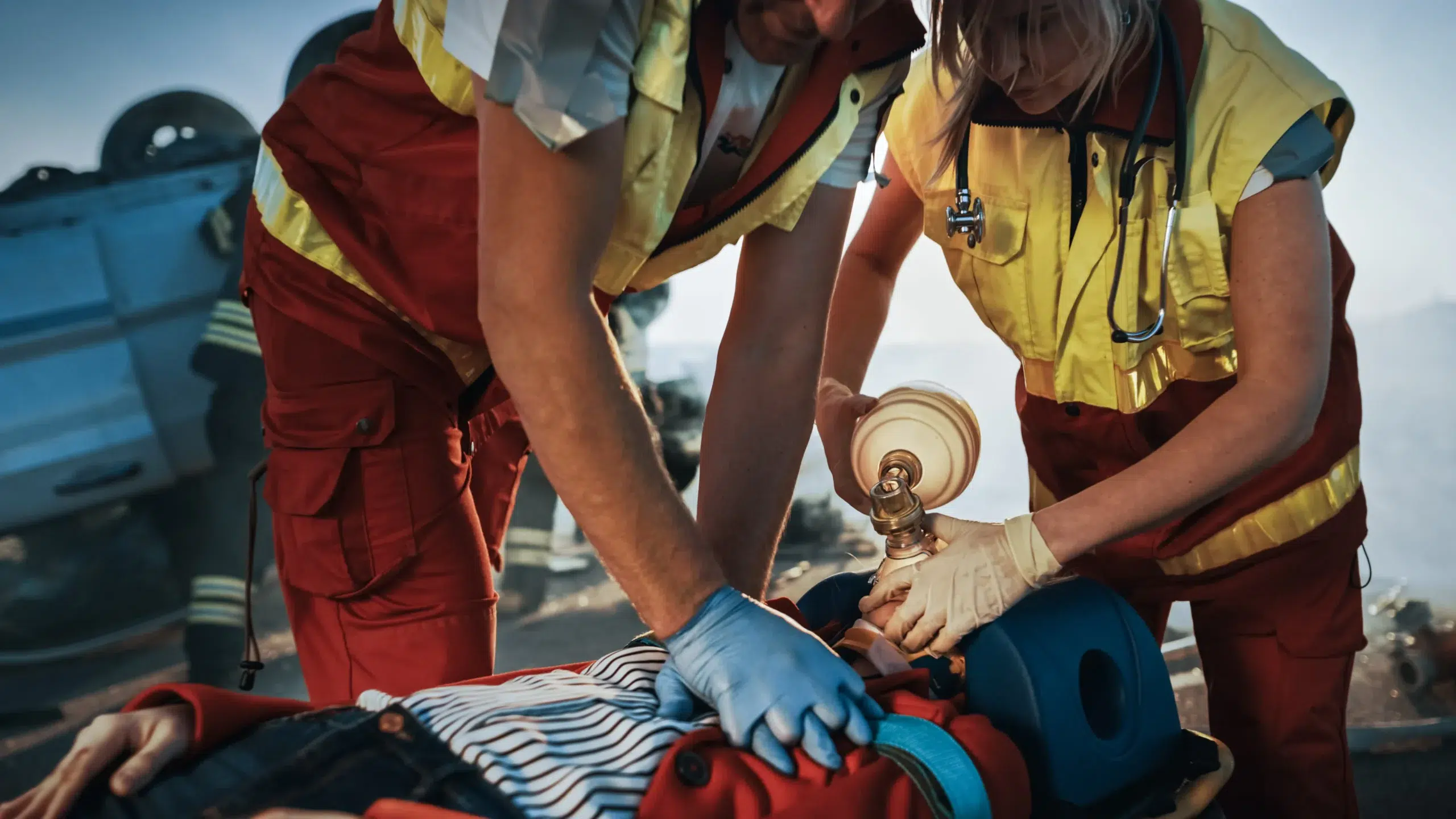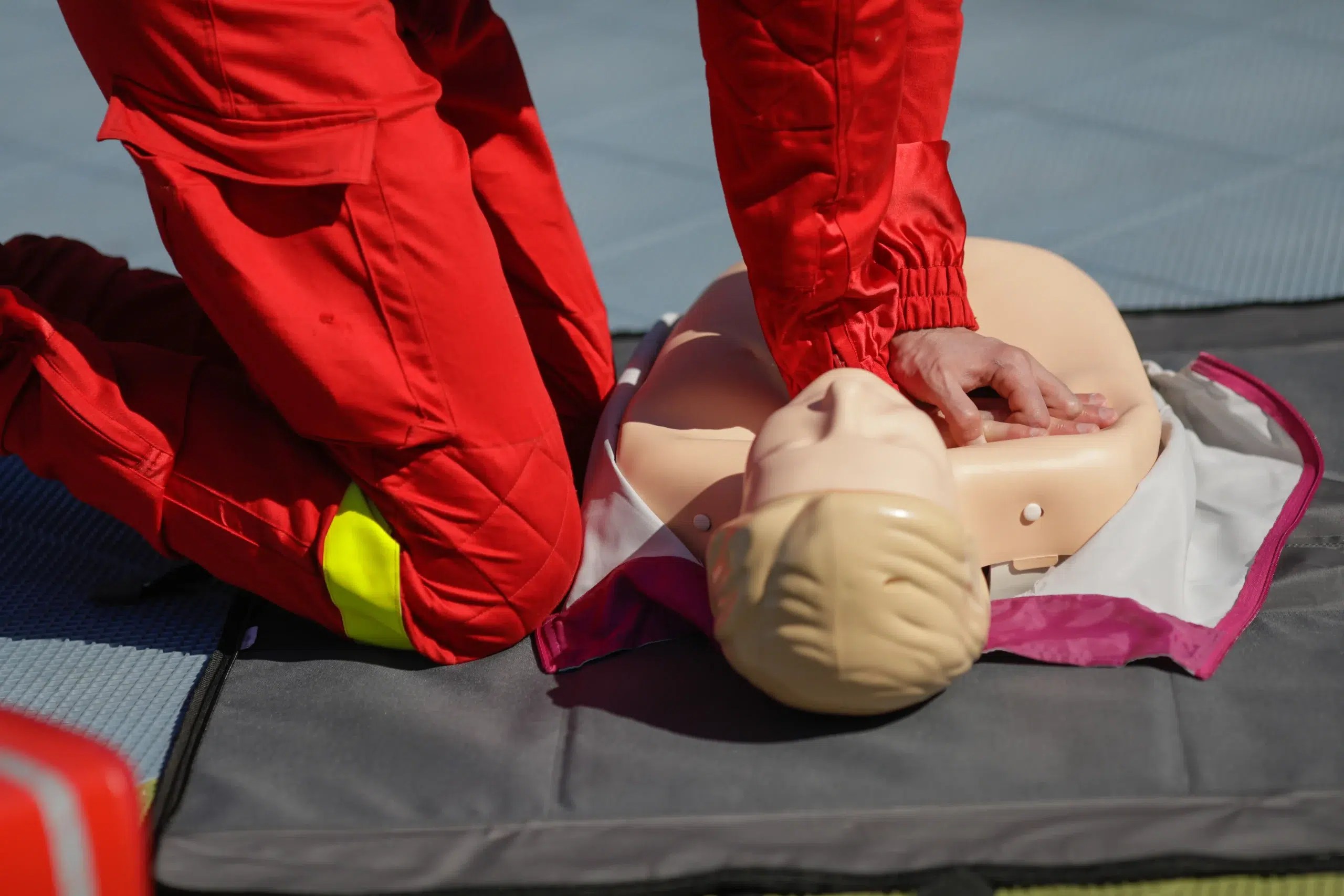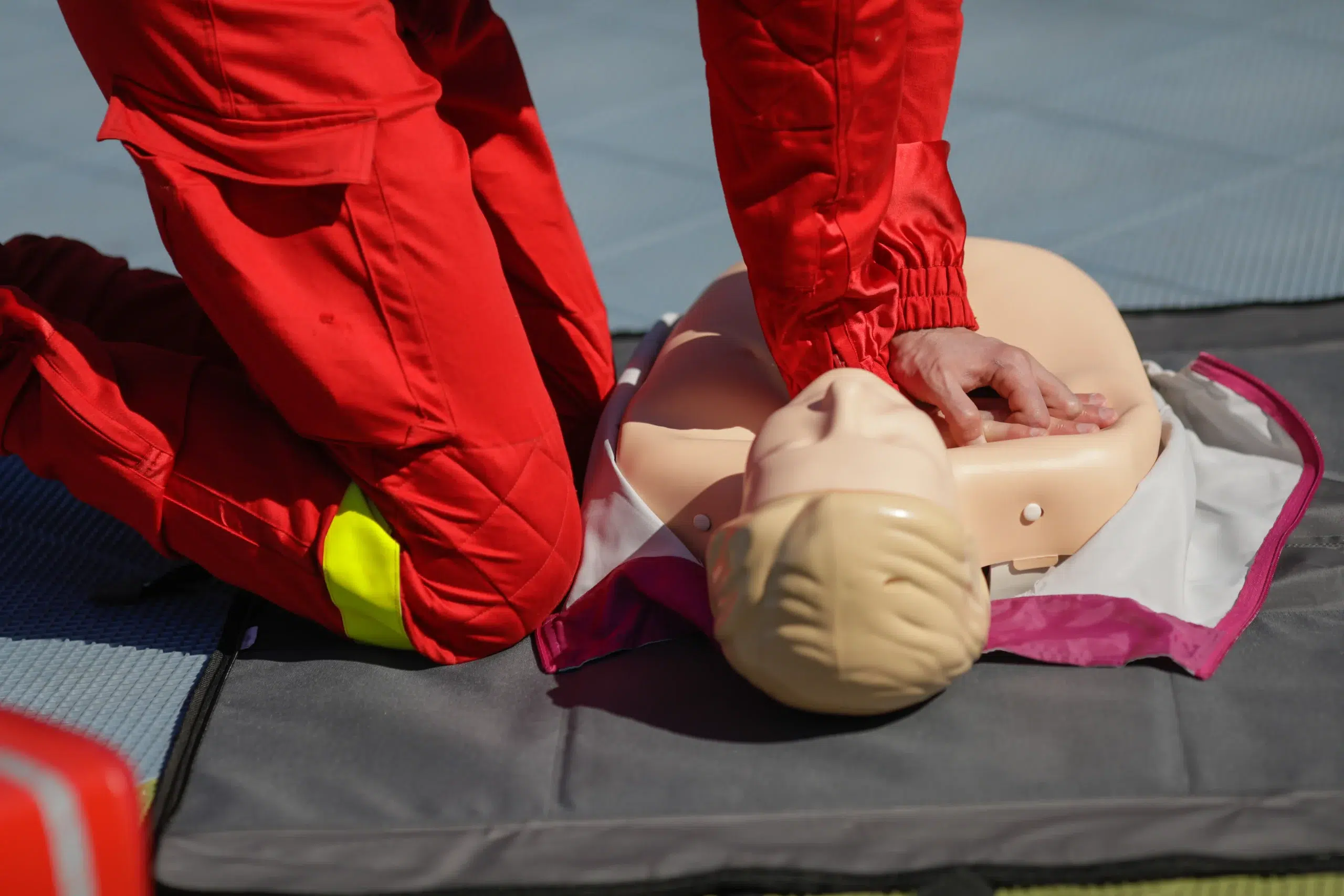Working in healthcare in San Jose means being prepared for anything. BLS for healthcare providers in San Jose isn’t just a certification—it’s a critical skill set that can save lives. This comprehensive guide covers everything from the basics of CPR to advanced airway management techniques. Whether you’re looking for your initial BLS certification or need to renew your current credentials, we’ll help you find the right course in San Jose that fits your busy schedule. We’ll also explore the benefits of BLS certification, discuss cost-effective options, and provide resources for ongoing skill development. Let’s ensure you’re prepared to deliver the highest standard of care in any emergency.
Key Takeaways
- BLS is crucial for healthcare professionals: It provides the advanced skills needed to respond to medical emergencies, directly impacting patient outcomes and meeting workplace requirements.
- Finding the right BLS course matters: Consider your schedule and learning style when choosing between in-person, blended learning, or online options like Safety Training Seminars’ RQI program.
- Stay current with your BLS certification: Renew your certification every two years and keep your skills sharp through regular practice and continuing education. This ensures you’re always prepared to provide high-quality care.
What is BLS? Why is it Crucial for Healthcare Providers?
What is BLS?
Basic Life Support (BLS) is an advanced level of medical care that builds upon the foundation of CPR. It’s designed for healthcare professionals, like doctors, nurses, paramedics, and other first responders. BLS covers core CPR techniques and expands into other critical skills, such as using an AED and relieving airway obstructions in adults, children, and infants. Think of it as a comprehensive toolkit for responding to life-threatening emergencies. BLS training also emphasizes recognizing and managing respiratory distress and cardiac arrest. It goes beyond the basics to equip healthcare providers with the knowledge and skills to deliver effective care in time-sensitive situations.
Why Healthcare Providers Need BLS Certification
For healthcare providers, BLS certification isn’t just a credential—it’s a fundamental requirement. Most medical facilities mandate BLS certification for their staff, recognizing its importance in delivering immediate and effective care. High-quality BLS is a critical link in the chain of survival, directly impacting patient outcomes, as highlighted by the World Health Organization. Having a team of certified BLS providers ensures a coordinated and skilled response to emergencies, ultimately increasing the chances of survival. BLS certification validates a healthcare provider’s ability to perform life-saving procedures according to established guidelines, contributing to a higher standard of patient care. Plus, holding a current BLS certification demonstrates a commitment to professional development and staying up-to-date with the latest medical practices. You can find BLS certification courses in San Jose with Safety Training Seminars. They offer a range of options to fit your schedule and learning style.
Where to Get BLS Certified in San Jose
Finding the right BLS certification course can feel overwhelming with so many options. To help you, we’ve compiled a list of providers in San Jose, outlining what they offer so you can make the best choice.
Safety Training Seminars
Safety Training Seminars, a woman-owned American Heart Association (AHA) Training Center, offers various certification courses, including BLS, ACLS, PALS, CPR, and First Aid. They prioritize high-quality training and offer courses seven days a week in San Jose and surrounding areas. Check their course calendar for upcoming BLS classes. Their flexible schedule makes it easier to fit training into your busy life. They also offer a low price guarantee.
American Heart Association
While the AHA doesn’t directly conduct training, they set the standards for CPR and emergency cardiovascular care. They offer resources and guidelines for authorized training centers like Safety Training Seminars. Explore the AHA website for more information on BLS course content and locate certified training centers.
American Red Cross
The American Red Cross also offers BLS certification courses. They are an accredited provider of continuing education, issuing a two-year digital certificate upon successful completion. Find BLS courses offered by the Red Cross on their website. This might be a good fit if their digital certificate and course format work for you.
CPR Training Center
Safety Training Seminars also operates as CPR Training Center in downtown San Jose, offering AHA-compliant CPR, BLS, ACLS, and PALS courses. These downtown San Jose courses are comprehensive, covering all essential CPR and first aid skills. This location might be more convenient if you’re working or living in the downtown area.
BLS Course Formats for Busy Professionals
As a healthcare provider, your schedule is likely demanding. Finding the right BLS certification course means finding one that fits your busy life. Let’s explore some popular options:
In-Person Training
Traditional in-person BLS training provides a hands-on learning experience. These courses typically run for about four and a half hours and cover essential skills like CPR, AED use, and clearing obstructed airways for adults, children, and infants. The structured environment of in-person training allows for direct interaction with instructors and real-time feedback. Organizations like the American Red Cross offer these courses in San Jose.
Online and Blended Learning
For those seeking more flexibility, blended learning combines online coursework with in-person skills sessions. This format allows you to complete the cognitive portion of the training at your own pace, then demonstrate your skills in a practical setting. This hybrid approach can be a great option for professionals juggling multiple commitments. The Red Cross also offers this blended learning format for BLS certification.
Safety Training Seminars’ RQI Program
Safety Training Seminars offers the American Heart Association’s Resuscitation Quality Improvement (RQI) program. This program is a popular choice for medical professionals seeking a streamlined and efficient path to BLS, ACLS, and PALS certification. RQI uses online learning modules and skills assessments, allowing you to renew or obtain your certification on a flexible schedule.
Accommodating Your Schedule
We understand that healthcare professionals work around the clock. That’s why Safety Training Seminars provides AHA-certified BLS, ACLS, PALS, CPR, and First-aid courses seven days a week in San Jose and surrounding areas like Santa Clara and Sunnyvale. Whether you prefer weekends, weekdays, or evenings, you can find a course that fits your availability.
Essential BLS Skills and Knowledge
BLS certification equips healthcare providers with the skills to respond to life-threatening emergencies. This section covers the core components of BLS training.
High-Quality CPR for Adults, Children, and Infants
High-quality CPR is the cornerstone of BLS. You’ll learn the proper techniques for chest compressions, rescue breaths, and how to recognize cardiac arrest. Training covers CPR administration for adults, children, and infants, addressing the physiological differences between these groups. The American Red Cross incorporates real-life emergency scenarios into its training to build confidence and prepare you for diverse situations.
AED Use and Maintenance
Automated External Defibrillators (AEDs) can restore a normal heart rhythm during cardiac arrest. BLS training covers proper AED use and basic maintenance. You’ll learn how to assess the situation, apply the AED pads, and follow the device’s prompts. Practical skills tests, like those from the CPR Training Center, ensure you can confidently use an AED in a real emergency.
Airway Management and Choking Relief
BLS goes beyond basic CPR to address respiratory distress and airway obstructions. You’ll learn techniques to open and maintain an airway, including how to relieve choking. The American Red Cross clarifies that BLS training provides a broader skill set than CPR alone, preparing you for various respiratory emergencies.
Team Dynamics in Emergencies
Effective teamwork is crucial in emergencies. BLS training often includes scenarios that emphasize communication, coordination, and role assignment within a team. Regular practice is essential to maintain proficiency, and Medicus Training discusses how telemedicine can offer remote support during BLS interventions. This training prepares you to work with other healthcare professionals during critical incidents.
BLS Certification Costs and Value
Getting BLS certified is an investment in your career and the well-being of those around you. Let’s break down the costs and explore the value it offers.
Standard Pricing and Group Discounts
BLS certification courses in San Jose typically cost around $70. CPR Training Center, for example, offers the American Heart Association BLS CPR Provider class, a 3.5-hour course, for $70. They also offer a group discount of 5% for 2–5 people using the coupon code BLS5, making it more affordable for teams to train together. This can be a great option for clinics or hospital departments.
Safety Training Seminars’ Low Price Guarantee
Safety Training Seminars, a woman-owned AHA Training Center in San Jose, offers various certification courses, including BLS, ACLS, PALS, CPR, and First Aid. They’re committed to providing high-quality training at competitive prices. Their low price guarantee reinforces this commitment.
Long-Term Value
The value of BLS certification goes beyond the initial cost. Your BLS certification provides a two-year digital certificate, accessible from anywhere. This strengthens your credentials and equips you with essential skills. Providing immediate, high-quality basic life support is crucial, and following evidence-based guidelines leads to better patient outcomes. Consider it an investment in your career, your patients, and your community.
Register for a BLS Course
Getting your BLS certification is straightforward. This section covers how to sign up, what to expect, and how to prepare.
How to Sign Up
Finding the right BLS course in San Jose is easy thanks to various training centers offering American Heart Association (AHA) certified courses. Safety Training Seminars, for example, offers BLS, ACLS, PALS, CPR, and First Aid training seven days a week. This flexible schedule makes it easier to find a class that works for you. You can browse available courses and register online.
Age and Physical Requirements
While most BLS courses don’t have strict age limits, you should generally be at least 16 years old to enroll. The training involves physical activity, so you’ll need to be able to perform CPR techniques, like chest compressions and rescue breaths. Your BLS certification, earned through programs in San Jose like those at Safety Training Seminars, will be valid nationally.
Materials and Preparation
Before your BLS course, review any materials provided by the training center. This preparation will give you a head start and help you get the most out of the class. Regularly practicing your BLS skills is key for maintaining proficiency. Online resources and refresher courses can also help you stay current on the latest guidelines and techniques. Keep good records of your training and certifications; they’re helpful for your professional development and demonstrate your commitment to high-quality patient care.
Maintain Your BLS Certification
Earning your BLS certification is a significant achievement, but maintaining it is equally important for consistently providing safe and effective patient care. Staying up-to-date with the latest guidelines ensures you’re prepared and confident in any emergency.
Renewal Requirements
BLS certification generally lasts for two years. For instance, the American Red Cross provides a two-year digital certificate after you successfully complete their BLS course, offering easy access to your certification records and training history. Always confirm the specific renewal requirements with your certifying organization. Safety Training Seminars offers a variety of renewal courses to help you stay current.
Continuing Education
Many healthcare licensing boards require continuing education credits. The American Red Cross is jointly accredited by the ACCME, ACPE, and ANCC, meaning their BLS training often provides these necessary credits. This can be a significant advantage when it’s time to renew your BLS certification.
Stay Updated on Guidelines
Beyond meeting the formal renewal requirements, staying informed on the latest BLS guidelines is key to providing effective care. Regularly practicing your skills is crucial for maintaining proficiency. Online resources and courses are a convenient way to refresh your knowledge and learn updated techniques, ensuring you’re always ready to deliver the best possible care in emergencies.
Benefits of BLS Certification
As a healthcare provider, your skills and knowledge directly impact patient outcomes. BLS certification goes beyond a credential—it signifies your dedication to providing high-quality care and represents a significant investment in your career. Let’s explore the key benefits.
Career Advancement
BLS certification is often a prerequisite for many healthcare roles. It’s a clear signal to employers that you possess the fundamental skills to handle emergency situations. Having this certification on your resume can open doors to more opportunities and may even be necessary for promotions. Whether you’re a medical student, nurse, or experienced physician, BLS certification demonstrates your commitment to patient safety and can give you a competitive edge.
Improved Patient Care and Confidence
Imagine facing a real-world emergency. Your training kicks in, and you confidently perform life-saving procedures. This is the power of BLS. Effective BLS training equips you with the skills to respond effectively in critical situations, improving patient outcomes. Beyond the technical skills, BLS certification instills confidence, allowing you to remain calm and focused under pressure, essential for delivering the best possible care.
Meeting Professional Requirements
Many healthcare organizations and licensing bodies require BLS certification. This required training ensures that healthcare professionals adhere to established standards and best practices. By maintaining your BLS certification, you demonstrate your commitment to professional development and upholding the highest standards of patient care. It also ensures you comply with industry regulations and maintain your qualifications.
Choose the Right BLS Course in San Jose
Choosing the right BLS course is a crucial step for any healthcare provider. With several options available in San Jose, consider your individual needs and preferences to find the best fit.
Factors to Consider
When selecting a BLS course in San Jose, look for a program recognized and respected within the healthcare community. The American Heart Association (AHA) is a leading authority on resuscitation science, and their BLS courses are widely accepted. Consider the course format and schedule. Do you prefer in-person instruction or the flexibility of online learning? Think about the course location and its accessibility. Safety Training Seminars offers courses in San Jose, making it convenient for local providers.
Compare Courses
Take time to compare different BLS courses offered in San Jose. Safety Training Seminars offers a comprehensive selection of AHA-certified courses, including BLS, ACLS, and PALS. Look at what each course covers, the total time commitment, and the overall cost. Reading reviews from past students can offer valuable insights into the quality of instruction and the learning experience. You can find additional courses through the American Heart Association directly.
Align with Your Healthcare Role
As a healthcare professional, ensure your BLS certification is valid nationally, often a requirement for employment across various medical settings. Whether you’re a medical student, nurse, physician, or other healthcare worker, maintaining current BLS certification demonstrates your commitment to patient safety and high-quality care. Regularly practicing your BLS skills is essential for maintaining proficiency. Consider supplementing your in-person training with online resources and courses to stay updated on the latest BLS guidelines and techniques.
Succeed in BLS Certification and Skill Retention
Passing your BLS certification course is a significant accomplishment, but your journey doesn’t end there. Maintaining your skills and staying up-to-date with the latest guidelines is crucial for providing effective care in emergencies. This section offers practical advice for healthcare providers in San Jose to succeed in BLS certification and retain those essential lifesaving skills.
Time Management for Healthcare Providers
Juggling the demands of a healthcare career can be challenging. Finding time for professional development, like BLS certification or recertification, requires effective time management. Prioritize your tasks and schedule dedicated time for BLS training and practice. Treat these commitments with the same importance as patient care, as they directly contribute to your ability to deliver effective care. Consider using time management tools or techniques to help you stay organized and maximize your productivity. Remember, maintaining a healthy work-life balance benefits not only you but also your patients. When you’re at your best, you’re better equipped to handle the pressures of your profession and provide high-quality care. For more helpful advice, check out these tips for mastering basic life support.
Maintain Skill Proficiency
BLS skills require regular practice to stay sharp. Don’t let your skills get rusty. Integrate BLS practice into your routine. You can practice on your own, with colleagues, or even consider refresher courses. Online resources and tools can also be valuable for staying current and keeping up with the latest guidelines. Regular practice builds muscle memory and reinforces the critical steps involved in delivering effective BLS. This consistent reinforcement ensures you’re prepared to respond confidently and efficiently in a real-life emergency. Explore the BLS course options offered by Safety Training Seminars to maintain your skills.
Resources for Practice and Support
Several resources are available to support your ongoing BLS skill development. Professional organizations, like the American Heart Association, offer updated guidelines and educational materials. Many online platforms provide interactive training modules and simulations. Consider exploring these resources to supplement your in-person training and stay informed about advancements in BLS techniques. Additionally, connect with your colleagues and create a supportive network for practicing and sharing knowledge. This collaborative approach can enhance your learning and create a sense of shared responsibility for maintaining BLS proficiency. HealthStream offers performance learning solutions for healthcare professionals.
Related Articles
- BLS ACLS PALS Training in San Jose: Your Guide – San Jose CPR Classes
- San Jose CPR Certification: Your Complete Guide – San Jose CPR Classes
- BLS CPR Classes in San Jose, CA – San Jose CPR Classes
- CPR, BLS, ACLS, PALS, & First-aid Courses in San Jose, CA
- San Jose CPR Certification: Your Guide – San Jose CPR Classes
Frequently Asked Questions
How often do I need to renew my BLS certification? BLS certification is typically valid for two years. It’s essential to renew your certification before it expires to maintain your credentials and stay current with the latest guidelines.
What’s the difference between BLS and CPR? CPR is a core component of BLS, but BLS encompasses a broader range of skills. BLS builds upon CPR by adding essential skills like using an AED, relieving airway obstructions, and understanding team dynamics during emergencies. It’s designed specifically for healthcare providers and other professionals who may need to respond to life-threatening situations.
Are there online BLS certification options available? Yes, blended learning options combine online coursework with in-person skills sessions. This allows for flexibility while still providing hands-on training. Fully online renewal options, like the RQI program, are also available for currently certified healthcare providers.
What should I expect during a BLS course? BLS courses typically involve a combination of instruction, demonstrations, and hands-on practice. You’ll learn essential skills like CPR for adults, children, and infants, how to use an AED, and techniques for relieving choking. The course will also cover important topics like team dynamics and communication during emergencies.
Why is BLS certification important for my career? BLS certification is often a requirement for healthcare jobs and demonstrates your commitment to providing high-quality patient care. It can enhance your career prospects and provide you with the confidence to respond effectively in critical situations.


